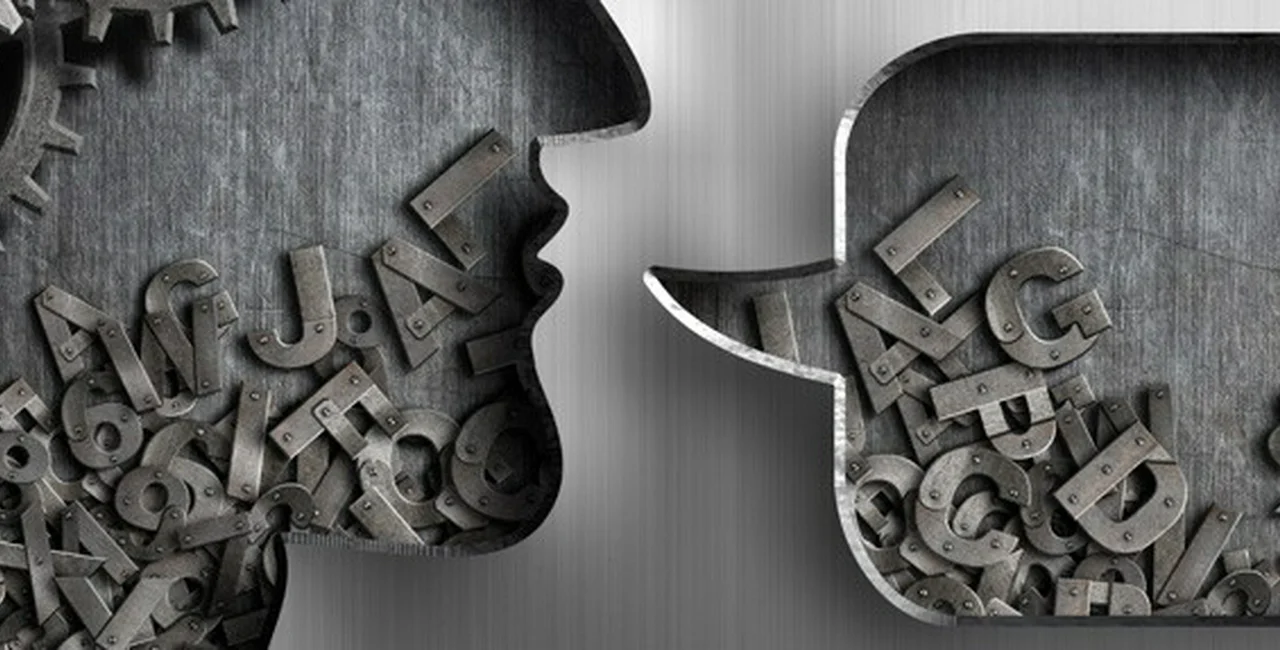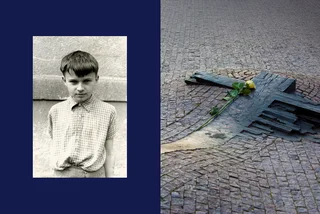Written by Sarah Castille
for Expats.cz
Fistfights in Parliament, respected journalists locked in airport bathrooms by none other than the Prime Minister himself, Czech politics can sometimes seem like a flashback to the more puerile years of junior high, when wolfish cliques had the power to shatter reputations in instants and school yard taunts and punches were a valid stand-in for diplomacy. Although the Czech Republic has come a long way since the days of Communism, we´re not quite there yet. Recent World Bank statistics show that not only are Czech government employees second among Europeans in their willingness to accept bribes, but also that the Czech Republic is the only new member state to have actually increased its level of corruption since EU accession.
The events surrounding last February´s election did nothing to dispel this reputation, as parliament did its best to transform itself from a respected forum of legal public representation into a set from a B-grade Brooklyn-style mafia movie. The candidates´ most ardent advocates garnered votes through persuasive tactics potent enough to impress Capone himself. Some Ministers of Parliament received thoughtful care packages containing bullets and gunpowder and one conscientious supporter even went the extra mile by sending a pro-Klaus senator a personal text message with the following words of encouragement: “How much did you get from Klaus? Die.”
If you´ve gotten the idea, however, that Czech politics have little to offer beyond their entertainment value, remember that these are the people that are determining your visa status, how much you have to pay in taxes, and your level of access to health and social services. An understanding of Czech political culture will take you a long way in completing your transformation from tourist to honorary citizen. This article endeavors to give you a very brief insight into the platforms, policies, and modus operandi of the main political parties currently active in Czech government, without, of course, omitting some of the most interesting scandals to have arisen in recent months.
The Czech Political System
Like all European countries, the Czech Republic has a multi-party system. With the exception of a rare few, seats in Parliament are held by five major political parties, which are split into two coalitions. The ties that bind these coalitions are often as arbitrary as they are fragile, primarily because they unite parties with little in common besides a shared desire for power. As it stands, the majority coalition consists of a tenuous bond between the Civic Democrats, the Christian Democratic Union, and the Greens, but following certain election scandals of the last few months, we can expect that consortium to dissolve any day now. The opposition coalition, formed by a union of the Social Democrats and the Communists, is itself equally strained after the elections, when both parties put up separate candidates for election.
The Main Political Parties of the Czech Republic
Civic Democratic Party (ODS)
Občanská demokratická strana
Party Chairman: Mirek Topolánek (Prime Minister)
Seats in Parliament: 122
Political Orientation: Center-right
Whether you count yourself among those who praise his bravado or those who vilify him as George Bush´s lackey, February´s elections confirmed that Vaclav Klaus is, nevertheless, the President of the Czech Republic for the next 5 years. Known internationally for his anti-European stance and flagrant denial of global warming, Klaus is undoubtedly the most influential and well-known Czech politician after Vaclav Havel. While the President of the Czech Republic has little more than a nominal role in the government, Klaus has significant clout within his own party, ODS, which also happens to be the majority party in government and head of the ruling coalition.
PARTNER ARTICLE
ODS adopts a center-right stance, particularly in its liberal economic policy, efforts towards privatization, advocacy of the flat tax, and its euroscepticism. It has also demonstrated a marked willingness to cooperate with controversial international figures, in particular the Bush administration and Vladmir Putin, who has awarded Klaus a medal for his promotion of Russian culture, and is the primary supporter of the initiative to build a U.S.-run radar monitoring system in the Czech Republic. The party is officially headed by the current Prime Minister, Mirek Topolánek, who, being a Czech politician, has not failed to attract his fair share of scandals, notably due to his liberal usage of government-owned airplanes and his role as the perpetrator of the airport bathroom media lockdown mentioned earlier in this article. Residents of the hlavní město should note that ODS enjoys a strong influence in Prague and counts mayor Pavel Bém among its members.
Czech Social Democratic Party (ČSSD)
Česká strana sociálně demokratická
Party Chairman: Jiří Paroubek
Seats in Parliament: 87
Political Orientation: Center-left
The only Czech politician capable of rivaling Klaus in both audacity and arrogance is, befittingly, his main political opponent, Chairman of ČSSD and former Prime Minister Jiří Paroubek. Paroubek´s antics, such as his controversial divorce and dalliance with a younger woman, repeated traffic violations, and his open and vehement condemnation of his media opponents, have gained him both popular appeal and disapprobation. Paroubek stepped down as Prime Minister when his party lost his parliamentary majority in 2006, but has not failed to remain a very vocal member of Czech politics.
ČSSD promotes a typical social democratic agenda, advocating social welfare programs, pension reforms, and European integration. Until 1998, when it gained enough votes to join Parliament, it was widely considered to be a continuation of the pre-1989 Communist faction. However, since that time those prejudices have been largely dispelled and it has generated enough support to become one of the two leading parties in the Czech Republic.
ČSSD was particularly hard struck during the last presidential elections, when three of their members defected to the opposing camp, allegedly due to corruption. This has compelled the party to launch a campaign against party defection featuring a poster with pictures of the three defectors and the subtle headlines “We will buy you or you are going to weep – ODS” and “Treachery is just a matter of money.”
Communist Party of Bohemia and Moravia (KSČM)
Komunistická strana Čech a Moravy
Party Chairman: Vojtěch Filip
Seats in Parliament: 29
Political Orientation:
With the weight of its lurid past still heavy on its shoulders, one may wonder how the Communist party gets any votes at all. But it does: 12.8% in the 2006 elections, in fact. The truth is that, despite its hardships, many Czechs look on the Communist era with a certain degree of nostalgia. No, they are not longing for the purges or the Soviet tanks, but for the universal employment, the comprehensive pension system, and the lack of homelessness, drugs, and prostitution. This is particularly true of the elderly, who now seem to be facing retirement without the social safety net provided them during the Communist era. This may explain why the average age of Communist party members is 69. Although they remain the third most popular party, few members of other parties are willing to cooperate with the Communists, for obvious reasons.
Although the Communist party claims to promote a renovated, “creative application of Marxism” to current social realities within the Czech Republic, their party line remains typical of those of their ilk: job creation, fair wages, and worker protection.
Christian and Democratic Union – Czechoslovak People´s Party (KDU-ČSL)
Křesťanská a demokratická unie – Československá strana lidová
Party Chairman: Jiří Čunek
Seats in Parliament: 24
Political Orientation: Right
The name comes from the party´s Catholic affiliation, whose roots can be traced back to the Christian political movements of the Austro-Hungarian Empire. Today, the party embraces a right-wing platform advocating morality, tradition, and respect for Europe´s Christian heritage. That party members actually follow the creed of poverty, brotherly love, and self-denial is rendered somewhat dubious in light of Party Chairman Jiří Čunek´s recent corruption scandals as well as his intolerant and arguably racist attitude towards the Czech Roma population. Čunek´s political future is up in the air, as corruption allegations have forced him to step down from his cabinet position. He is, however, threatening to return, stirring up strong opposition among the Greens and causing a bit of confusion among members of his own party. Negotiations regarding his reinstatement are underway between the leaders of the majority coalition, so pay attention to the papers in the upcoming weeks.
Green Party (SZ)
Strana Zelených
Party Chairman: Martin Bursík (Minister of the Environment)
Seats in Parliament: 7
Political Orientation: Centrist
The Green Party may have the least parliamentary representation among the parties we have mentioned, but it is gaining influence, particularly among the young and those who have become disillusioned with the more established political parties. Not surprisingly, its party platform centers mainly on environmental issues, which are a matter of prime concern in this highly polluted nation. It is therefore somewhat ironic that the Greens find themselves in a coalition side-by-side with a party whose most visible figure, Vaclav Klaus, has called Al Gore “the apostle of arrogance” and the reasons behind his being awarded the Nobel Peace Prize “vague.”
Party Chairman Martin Bursík, who also holds the apt position of Minister of the Environment, was once idolized as the last bastion of ethical principle in the hotbed of sin and scandal that is Czech politics. Since the last election, however, the party has become mired in the sort of embarrassment we have come to expect from politicians in this country, particularly regarding a vaguely suggestive e mail from Bursík to fellow minister Kateřina Jacques, whom he refers to as “Katuška.” Nevertheless, it is fair to say that Bursík remains a role model among Czech politicians and a crusader against political corruption. Although there have been recent calls for his resignation from within his own party, they are primarily motivated by power struggles within party factions, not from any valid opposition to his leadership.












 Reading time: 7 minutes
Reading time: 7 minutes 





















